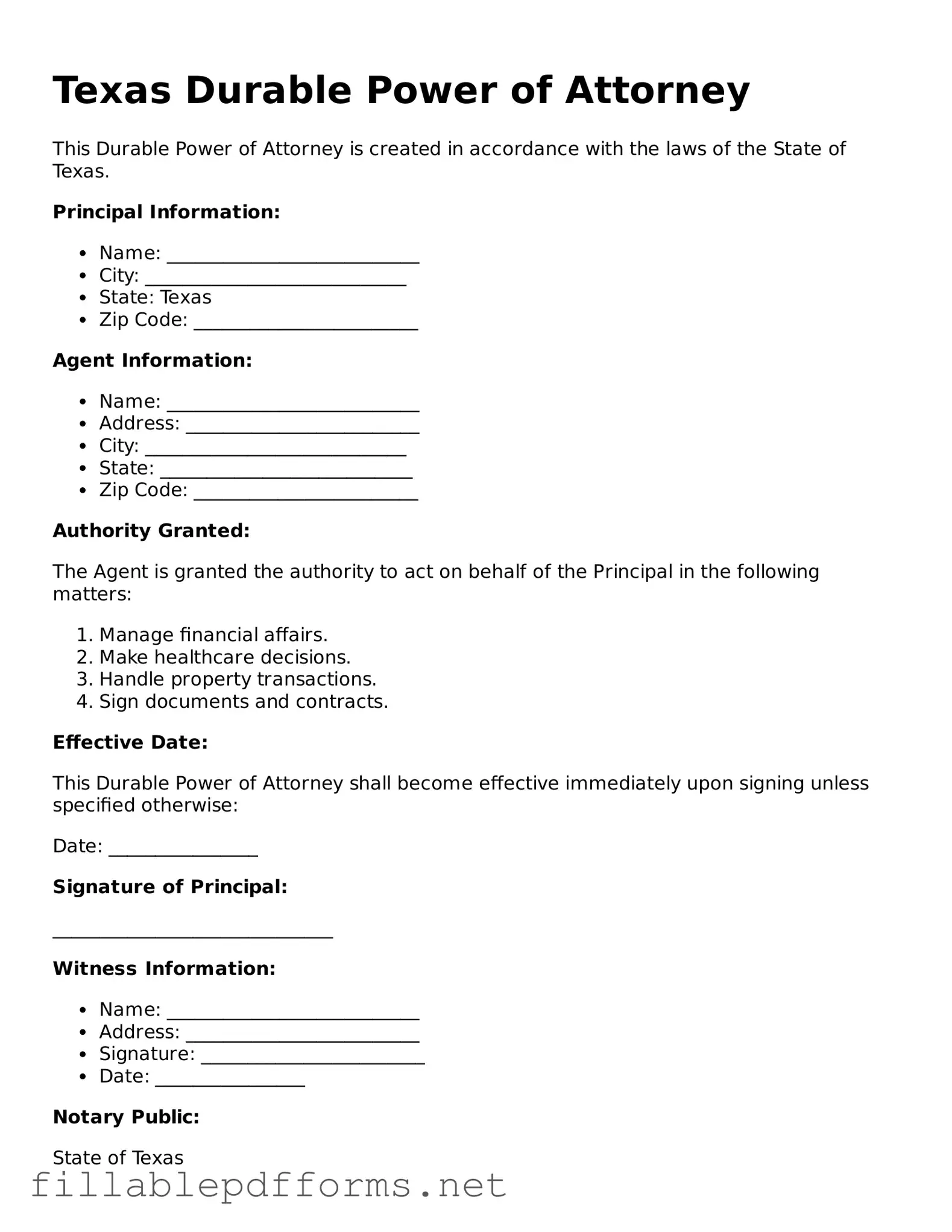Attorney-Verified Durable Power of Attorney Form for Texas State
A Texas Durable Power of Attorney form is a legal document that allows an individual, known as the principal, to designate another person, referred to as the agent, to make decisions on their behalf. This form remains effective even if the principal becomes incapacitated, ensuring that their financial and legal matters can be managed without interruption. Understanding the importance and implications of this document is essential for anyone considering its use in Texas.
Launch Editor Here

Attorney-Verified Durable Power of Attorney Form for Texas State
Launch Editor Here

Launch Editor Here
or
▼ Durable Power of Attorney PDF
Almost there — finish the form
Complete Durable Power of Attorney online fast — no printing, no scanning.